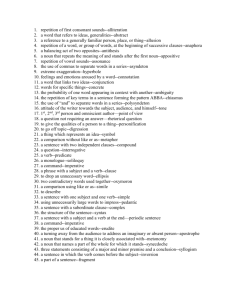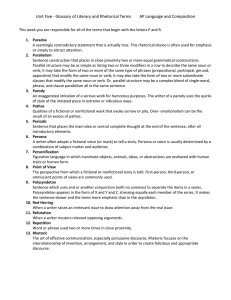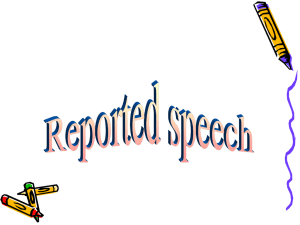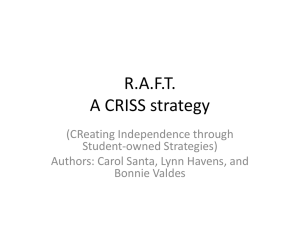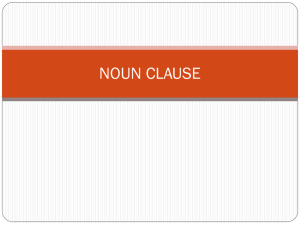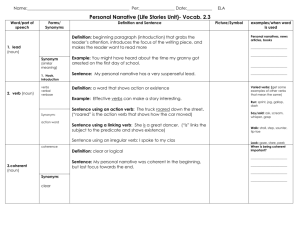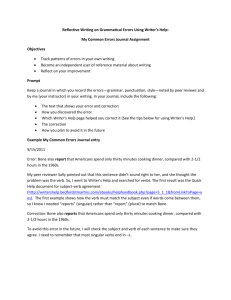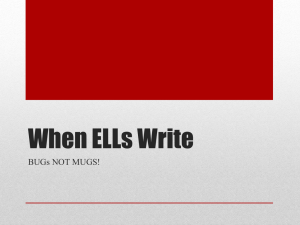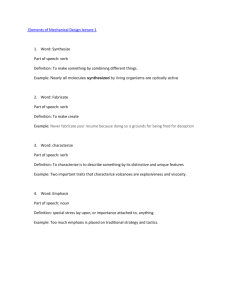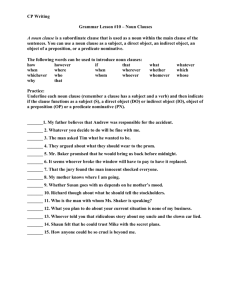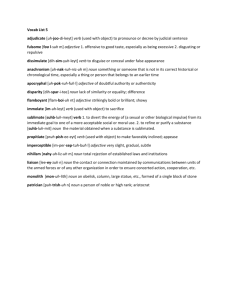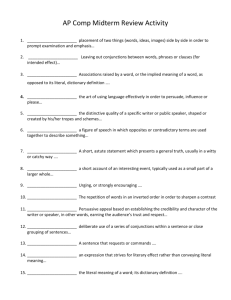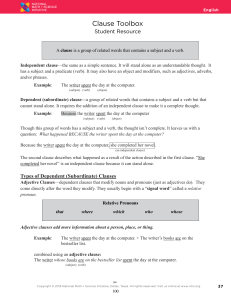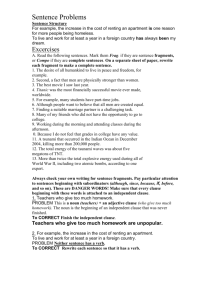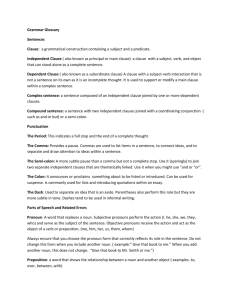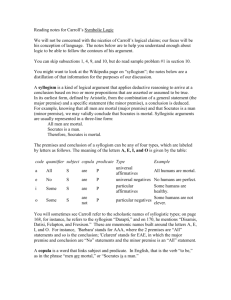Vocab 8 - Read Like a Writer
advertisement
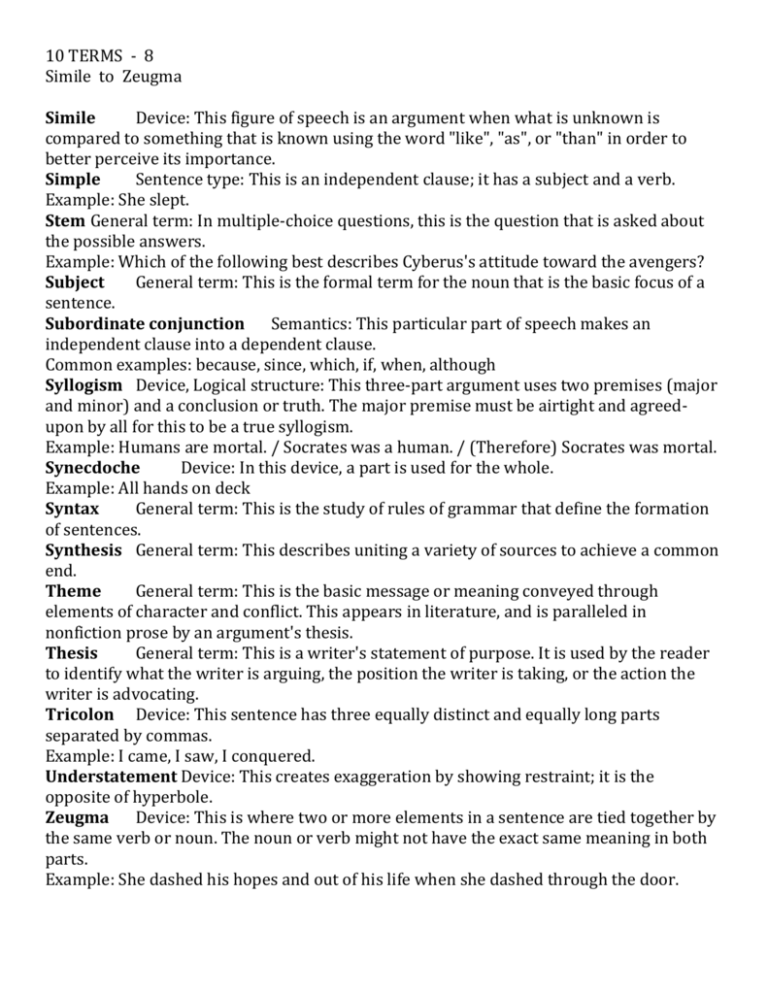
10 TERMS - 8 Simile to Zeugma Simile Device: This figure of speech is an argument when what is unknown is compared to something that is known using the word "like", "as", or "than" in order to better perceive its importance. Simple Sentence type: This is an independent clause; it has a subject and a verb. Example: She slept. Stem General term: In multiple-choice questions, this is the question that is asked about the possible answers. Example: Which of the following best describes Cyberus's attitude toward the avengers? Subject General term: This is the formal term for the noun that is the basic focus of a sentence. Subordinate conjunction Semantics: This particular part of speech makes an independent clause into a dependent clause. Common examples: because, since, which, if, when, although Syllogism Device, Logical structure: This three-part argument uses two premises (major and minor) and a conclusion or truth. The major premise must be airtight and agreedupon by all for this to be a true syllogism. Example: Humans are mortal. / Socrates was a human. / (Therefore) Socrates was mortal. Synecdoche Device: In this device, a part is used for the whole. Example: All hands on deck Syntax General term: This is the study of rules of grammar that define the formation of sentences. Synthesis General term: This describes uniting a variety of sources to achieve a common end. Theme General term: This is the basic message or meaning conveyed through elements of character and conflict. This appears in literature, and is paralleled in nonfiction prose by an argument's thesis. Thesis General term: This is a writer's statement of purpose. It is used by the reader to identify what the writer is arguing, the position the writer is taking, or the action the writer is advocating. Tricolon Device: This sentence has three equally distinct and equally long parts separated by commas. Example: I came, I saw, I conquered. Understatement Device: This creates exaggeration by showing restraint; it is the opposite of hyperbole. Zeugma Device: This is where two or more elements in a sentence are tied together by the same verb or noun. The noun or verb might not have the exact same meaning in both parts. Example: She dashed his hopes and out of his life when she dashed through the door.
